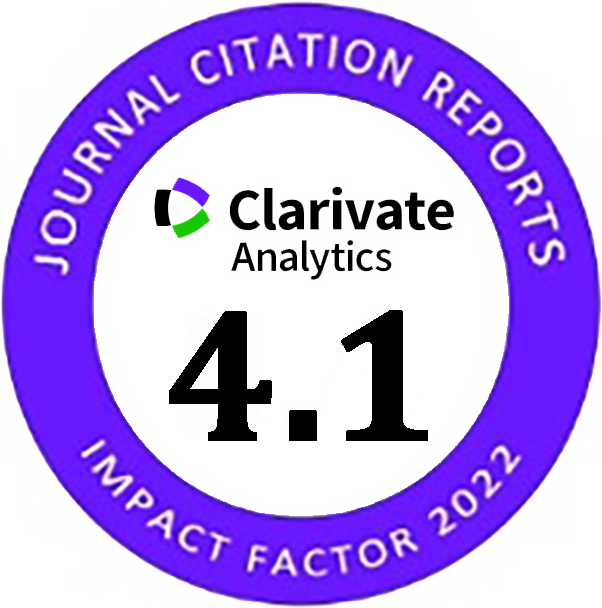Analytical Study of the Causes of Abandoned Construction Projects
Abstract
Construction industry is a vital field as it plays a significant role in the economic situation of the country. Many job opportunities will be created to develop and enhance the economy. However, not all projects can be finished on time or ahead of schedule, as the project may be delayed or even abandoned in worst cases at any stage of the project's cycle lifetime. Project abandonment is a serious problem which impedes the construction industry in many countries especially in Middle East. This paper is part of an ongoing research investigation to identify the most significant causes of project abandonments in Iraq. It presents a review of an existing literature on the causes of this problem. Consequently, the outcome of an extensive questionnaire survey of 40 crucial causes including 101 respondents is presented and discussed. Various statistical tools were used in the analysis of data such as descriptive statistics, Cronbach's alpha, and relative important index (RII) with the aid of SPSS and MS Excel. The result illustrates that the most significant and vital causes in Iraq were: Financial corruption, Assignment of work to companies that have no experience in that field, and Incompetent Contractor. The findings of this study will help future researchers looking for solutions for this problem in order to enhance the project success.
Keywords
References
O. Otunola and A. Olalusi, “Abandonment of Building Projects in Nigeria- A Review of Causes and solutions,” International Conference on Chemical, Civil and Environment engineering (ICCEE'2012) March 24-25, 2012 Dubai, pp. 253–255.
Carrero, R., G. Malvárez, F. Navas, and M. Tejada. "Negative impacts of abandoned urbanization projects in the Spanish coast and its regulation in the Law." Journal of Coastal Research (2009): 1120-1124.
Abdul-Rahman, Hamzah, Chen Wang, and Nur Hamizah Ariffin. “Identification of Risks Pertaining to Abandoned Housing Projects in Malaysia.” Journal of Construction Engineering 2015 (2015): 1–12. doi:10.1155/2015/524717.
Abdul-Rahman, Hamzah, Ali Mohammed Alashwal, Maryam Ayub, and Abdul Aziz Abdullah. "Abandoned housing projects in Malaysia: Pressing issues during the rehabilitation process." International Journal of Architectural Research: ArchNet-IJAR 7, no. 1 (2013): 65-73. doi:10.26687/archnet-ijar.v7i1.125.
Mac-Barango, Dumo. "Construction project abandonment: an appraisal of causes, effects and remedies." World Journal of Innovation and Modern Technology 1 (2017): 1-10.
Rameli, Alias, Foziah Johar, and C. S. Ho. "Responsiveness of the Malaysian planning system in managing housing supply." In International Conference on Sustainable Housing (ICSH), University Sains Malaysia, Penang, Malaysia. 2006.
“Key growth sectors for Iraq in 2019”. Available online: http://www.mselect.iq/blog/2019/03/key-growth-sectors-for-iraq-in-2019 (Accessed on April 2019).
“IMF Executive Board Concludes 2019 Article IV Consultation with Iraq” Press Release No. 19/301. Available online: https://www.imf.org/en/News/Articles/2019/07/26/pr19301-iraq-imf-executive-board-concludes-2019-article-iv-consultation-with-iraq (Accessed on March 2019).
Kabirifar, Kamyar, and Mohammad Mojtahedi. “The Impact of Engineering, Procurement and Construction (EPC) Phases on Project Performance: A Case of Large-Scale Residential Construction Project.” Buildings 9, no. 1 (January 8, 2019): 15. doi:10.3390/buildings9010015.
Adeleke, S. A. "Abandonment of Federal Government Low-Cost Housing Estate." An unpublished HND project submitted to Department of Building Technology, Federal Polytechnic, Offa (2005).
Dahlan, Nuarrual Hilal Md. "Legal issues in the rehabilitation of abandoned housing projects of the liquidated housing-developer-companies in peninsular Malaysia." European Journal of Social Sciences 23, no. 3 (2011).
Dahlan, Nuarrual Hilal M. “Rehabilitation of Abandoned Housing Projects: a Comparative Analysis Between the Law and Practice in Peninsular Malaysia and the Republic of Singapore.” Commonwealth Law Bulletin 37, no. 1 (March 2011): 145–173. doi:10.1080/03050718.2011.548143.
Twumasi-Ampofo, Kwadwo, Ernest Osei-Tutu, Isaac Decardi-Nelson, and Prince Abrokwa Ofori. "A model for reactivating abandoned public housing projects in Ghana." Civil and Environmental Research 6, no. 3 (2014): 6-16.
Na Ayudhya, Borvorn Israngkura, and Masahiko Kunishima. “Risks of Abandonment in Residential Projects Caused by Subcontractors.” Procedia Computer Science 121 (2017): 232–237. doi:10.1016/j.procs.2017.11.032.
Hicks, Mathew. "Project Abandonment: Separate Legal Concept." An article placed on internet under google search on project abandonment (2008).
SPIEGEL Staff, “Global Downturn Dooms Prestige Construction Projects,” Available online: https://www.spiegel.de/international/business/architecture-s-reality-check-global-downturn-dooms-prestige-construction-projects-a-601523.html (Accessed on March 2019).
Ahmed, Syed M., Salman Azhar, M. Castillo, and P. Kappagantula. "Construction delays in Florida: An empirical study." Final report. Department of Community Affairs, Florida, US (2002).
Tavakol, Mohsen, and Reg Dennick. "Making sense of Cronbach's alpha." International journal of medical education 2 (2011): 53. doi:10.5116/ijme.4dfb.8dfd.
Ubani, Chinenye, Benedict Amade, Kevin Aku Okorocha, Franklin Agwu, and F. Okogbuo. "Project risk management issues in the Nigerian construction industry." International Journal of Engineering and Technical Research 3, no. 1 (2015): 217-232.
Kazaz, Aynur, Ekrem Manisali, and Serdar Ulubeyli. “Effect of Basic Motivational Factors on Construction Workforce Productivity in Turkey/Pagrindinių Motyvacijos Veiksnių Įtaka Statybos Produktyvumui Turkijoje.” Journal of Civil Engineering and Management 14, no. 2 (June 30, 2008): 95–106. doi:10.3846/1392-3730.2008.14.4.
Aibinu, A.A, and G.O Jagboro. “The Effects of Construction Delays on Project Delivery in Nigerian Construction Industry.” International Journal of Project Management 20, no. 8 (November 2002): 593–599. doi:10.1016/s0263-7863(02)00028-5.
Alao, Oluwaseyi Olalekan, and Godwin Onajite Jagboro. “Assessment of Causative Factors for Project Abandonment in Nigerian Public Tertiary Educational Institutions.” International Journal of Building Pathology and Adaptation 35, no. 1 (April 10, 2017): 41–62. doi:10.1108/ijbpa-07-2016-0016.
DOI: 10.28991/cej-2019-03091426
Refbacks
Copyright (c) 2019 Abdullah Adil

This work is licensed under a Creative Commons Attribution 4.0 International License.






